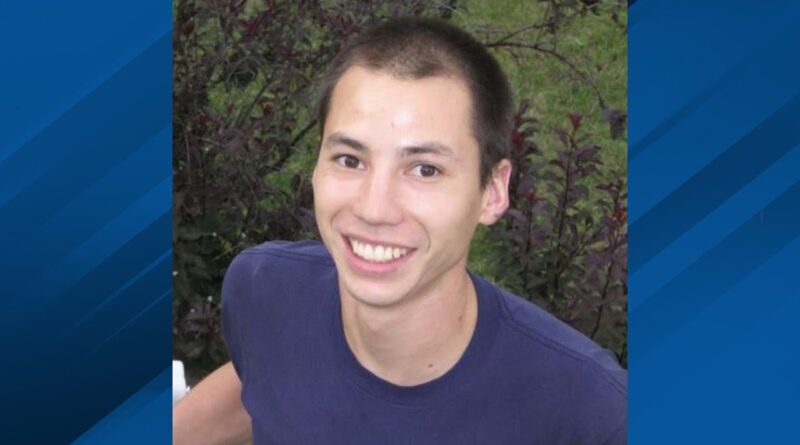Jacob Cabinaw Disappearance in Traverse City Michigan
The mysterious disappearance of Jacob Cabinaw on March 31, 2010, remains one of Michigan’s most haunting unsolved cases. Jacob, known for his kindness and devotion to his family and friends, vanished without a trace in Traverse City, Michigan. His unexplained absence left his family and community grappling with unanswered questions, rumors, and heartbreak. This article delves into the details surrounding his last known movements, the extensive search efforts that followed, and the ongoing speculation and theories that continue to surround his case over a decade later.
Who Was Jacob Cabinaw?
Jacob Cabinaw was born and raised in Grawn, Michigan, a small town near Traverse City. One of nine siblings, Jacob was deeply rooted in his family. At the time of his disappearance, he was living with his mother about twenty minutes outside Traverse City and was well-integrated into the community, balancing a mix of responsibilities that reflected his ambition and commitment. Jacob was taking classes at Northwestern Michigan College, working as a mechanic, and was also a member of the National Guard. Beyond his professional pursuits, Jacob’s most cherished role was that of a father to his two children from a previous marriage, with whom he maintained a positive relationship. His family recalls his dedication to them, noting that he often expressed his desire to buy a home for himself, his girlfriend, and his sons.
This deep-seated connection to his family and his plans for the future made his disappearance all the more baffling. Jacob was on a clear trajectory, working toward both personal and professional goals, and by all accounts, he had no intention of abandoning his loved ones. His sudden disappearance on March 31, 2010, left a void in the lives of those who knew him and set off an enduring mystery.
The Day of Jacob’s Disappearance: March 31, 2010
On March 31, 2010, Jacob Cabinaw spent part of his day playing disc golf with a friend, engaging in one of his favorite pastimes. Afterward, he dropped his friend off and decided to head home rather than join others for drinks. At 9:00 PM, Jacob made a routine call to the National Guard to confirm his student status, a monthly check-in required of him as a college student. This phone call marked one of the final known contacts Jacob made before he went missing.
Despite intending to return home to complete homework, Jacob never arrived. The hours that followed have remained cloaked in mystery. There were no signs of struggle or anything unusual to indicate he wouldn’t be back. His disappearance left his family perplexed, as nothing about his recent activities suggested he would suddenly leave his life behind. When the search began, the clues were scarce, and what little information there was would only deepen the mystery.
The Trail of Jacob’s Final Movements
After Jacob failed to return home, concerns quickly escalated. It was on April 2, 2010, two days after he was last seen in Michigan, that evidence of his presence surfaced again – this time in Missouri and Arkansas, nearly 900 miles from his hometown. His credit card was used around 4:49 AM that day in Arkansas, providing a confirmed, if perplexing, trace of his movements. The next purchase with Jacob’s credit card would later appear in Sweetwater, Texas, indicating that he had traveled even farther south.
Law enforcement identified a confirmed sighting of Jacob in West Fork, Arkansas, on April 2, but he seemingly vanished afterward. With each confirmed location, his path grew increasingly unusual. Jacob did not have strong connections to these areas, with the exception of a brother stationed in Fort Hood, Texas. His family and investigators pondered why he might have made this unexpected journey, as it seemed unlike him to simply leave without notifying anyone.
This series of sightings and transactions raised more questions than it answered. Was Jacob traveling with someone? Did he encounter danger along the way? Despite extensive inquiries and searches, law enforcement has not uncovered any clues that might shed light on his motivations or what ultimately happened to him. His family struggled to accept the theory that he may have chosen to leave his life in Michigan, believing instead that something tragic may have occurred during his journey.
The Cold Case: Investigative Efforts and Theories
Since Jacob Cabinaw’s last known activity, investigators have continued to work on the case, but progress has been slow. Initial search efforts focused on the places he was known to visit and his route through the midwestern and southern United States. Although there were no clear signs of foul play in the locations where he was last seen, his family and friends are convinced that Jacob would not have left voluntarily. They remember him as a devoted father and son who was actively working to provide for his family. His sudden absence without a word contradicted his character, reinforcing the belief among loved ones that something happened to him beyond his control.
Without any concrete evidence, the mystery has invited numerous theories. Some speculated that Jacob may have faced unforeseen dangers along his route, possibly encountering someone who meant him harm. Another theory proposed that he may have experienced a crisis that led him to leave unexpectedly, though this remains unlikely given his devotion to his children and family responsibilities. The abrupt nature of his disappearance and the seemingly random travel pattern have fueled these varying perspectives.
Adding to the difficulty of solving Jacob’s case is the fact that he was declared legally deceased in 2015. This legal designation came after years without any developments, but it did little to bring closure to his family, who continue to search for answers.
Theory of Voluntary Disappearance
One of the first theories considered by investigators was that Jacob may have chosen to leave his life behind and start anew. People sometimes leave without informing friends or family, whether due to personal struggles, unresolved issues, or a desire for a fresh start. Jacob’s route, stretching from Michigan to Texas, could suggest he was purposefully distancing himself from his previous life. He had an amiable relationship with his ex-wife, loved his children, and was generally regarded as a family-oriented man. This theory remains contentious for his family, who contend that Jacob’s devotion to his children and ongoing plans to buy a house indicate he would not have abandoned them.
Some speculate that he may have been experiencing a personal crisis, potentially overwhelmed by responsibilities as a student, mechanic, and member of the National Guard. However, family members strongly doubt this theory, stating that he showed no signs of distress or dissatisfaction. Moreover, the abruptness of his disappearance, with no warning signs or farewells, further challenges the plausibility of this explanation.
Foul Play: A Case of Possible Abduction or Violence
Another prominent theory is that Jacob may have encountered foul play during his travels. From Michigan to Arkansas to Texas, the vast territory covered and his unexplained route have raised concerns that he might have met someone with malicious intent. His family and friends argue that it would have been uncharacteristic of him to pick up strangers or place himself in dangerous situations, but some theorists believe he may have unknowingly crossed paths with someone with harmful intentions.
This theory gains some support from the lack of contact with family or friends after his last phone call on March 31. His vehicle and belongings, which might provide further clues, were not located, leaving questions about whether someone else could have been involved. His travel through Missouri, Arkansas, and Texas could have been a result of an encounter with an individual or group who coerced him. The lack of surveillance footage or eyewitnesses from these regions, however, makes this theory challenging to substantiate.
The Mystery of Unusual Sightings and Credit Card Activity
One of the most puzzling aspects of Jacob’s case is the confirmed sightings and credit card activity in multiple states after he left Michigan. This has led some to theorize that Jacob might have been on an intentional journey, potentially seeking someone or meeting with a person unknown to his family. He was last seen in Arkansas and then appeared in credit card transactions in Sweetwater, Texas, raising speculation that he was heading in a specific direction for a purpose known only to him.
It’s possible that Jacob may have been traveling with an unknown companion, who either played a role in his disappearance or influenced his journey in ways yet to be discovered. The presence of his brother stationed at Fort Hood, Texas, has led to speculation that he might have been trying to reach him, though there’s no evidence he succeeded. This theory of a purposeful journey to Texas is complex, as his family asserts that if he had plans to visit his brother, he would have likely informed someone.
The theory also doesn’t account for why his credit card transactions would stop without any explanation, leaving unanswered questions about what he might have encountered on his route through the South.
The Theory of Mental Health Crisis or Psychological Distress
Mental health crises can sometimes drive people to make unexpected decisions, including abruptly leaving or engaging in behaviors outside their typical character. While Jacob’s family has stated he showed no signs of mental health issues, stress and personal responsibilities can sometimes lead to internalized struggles. This theory speculates that he may have experienced a sudden crisis that compelled him to travel across state lines, possibly with little awareness of the consequences.
It’s known that Jacob declined an invitation to socialize on the night of March 31, opting to complete his homework instead. Some have suggested that his choice to stay home, along with his unusual travel pattern, could indicate an internal struggle or sense of urgency. However, this theory has limited traction due to the absence of signs that Jacob was struggling emotionally or psychologically.
Additionally, the mental health crisis theory does not account for his prolonged journey across states, nor does it explain his credit card usage in specific locations. For his family, this theory is difficult to accept given his apparent stability and commitment to his future plans, but it remains among the more discussed possibilities.
The Possibility of an Accidental Death or Getting Lost
One theory that has persisted over the years is that Jacob may have become lost or suffered an accident in a remote area. This theory considers that he may have left his vehicle in an unfamiliar location, possibly under circumstances that led him to become disoriented or injured. Northern Michigan, Missouri, Arkansas, and Texas all feature vast rural areas, where a single individual could easily go unnoticed if they were to wander off the beaten path.
While it’s unclear why Jacob would have traveled so far south, some have speculated that he may have been following a winding path that ultimately led him into isolated or uninhabited terrain. This theory suggests that Jacob’s disappearance might not have been the result of intentional actions, but rather an unfortunate sequence of events that led to him being lost or unable to reach assistance.
However, this theory has gaps, such as the fact that no trace of his vehicle or personal items has been found. Additionally, despite extensive searches, no physical evidence has emerged in the areas where he was last seen. For an accidental scenario to hold weight, some tangible clue would likely have surfaced over the years, making this theory challenging to substantiate.
Jacob’s Case as a Cold Case and Renewed Interest
Jacob Cabinaw’s disappearance has become one of Michigan’s enduring cold cases. As time passes, the theories about his fate continue to evolve, with new questions and perspectives emerging. Today, the Western Michigan University Cold Case Program students’ involvement has reignited interest in the case, with their digital case file, social media analysis, and mapping efforts providing new insights. Through these initiatives, there remains hope that fresh eyes may bring to light overlooked details or previously unknown evidence.
Each theory, while holding potential insights, also has limitations. With no conclusive evidence to support one possibility over another, Jacob’s family remains in a state of painful uncertainty, hoping for an answer to this enduring mystery. As the investigation presses on, these theories provide avenues for both hope and introspection, underscoring the complexity and depth of missing persons cases like Jacob’s. His disappearance stands as a reminder of the challenges involved in seeking justice and closure when so few answers are available.
New Hope: How Students Are Helping Solve the Case
Years after his disappearance, Jacob Cabinaw’s case remains active, thanks to a partnership with Western Michigan University’s Cold Case Program. Five students from the program have been working closely with the Grand Traverse Sheriff’s Office in hopes of uncovering new information. Their efforts include creating a comprehensive digital case file, which involves compiling and analyzing social media activity, phone records, and forming detailed timelines and maps based on his movements. These students bring a fresh perspective, employing modern investigative techniques and drawing on their academic knowledge to contribute to the case.
Their work has provided renewed hope for Jacob’s family, who are grateful that someone is still dedicated to uncovering the truth. The students’ involvement highlights the value of community partnerships in cold cases, where fresh eyes and advanced methods can make a significant impact. Their dedication has reinvigorated the investigation, offering a glimmer of hope to those seeking closure. The family hopes that this collaboration may lead to breakthroughs that have eluded investigators for over a decade.
Seeking Closure: Jacob’s Family and the Lasting Impact
The disappearance of Jacob Cabinaw has left a deep and lasting impact on his family, who continue to grapple with the uncertainty of his fate. His siblings and mother have spent years coping with the void left by his absence. Every missed holiday, every unanswered question, and every year without resolution weighs heavily on their hearts. While his official declaration of death in 2015 might have offered some formal closure, it has not lessened their desire to find out what happened to him.
The family’s determination has kept Jacob’s case alive in the minds of many within their community. Through media outreach, social media campaigns, and their involvement with organizations for missing persons, they have ensured that Jacob’s story is not forgotten. This case has become a reminder of the importance of persistence in missing persons cases, particularly when answers remain elusive for years on end.
Jacob’s family remains hopeful that through ongoing efforts, someone with knowledge of his whereabouts or last moments will come forward. His disappearance has served as a powerful lesson about the need for awareness and support in cases of missing persons, and Jacob’s memory lives on as his loved ones continue to seek justice and peace.
Discover more from City Towner
Subscribe to get the latest posts sent to your email.




